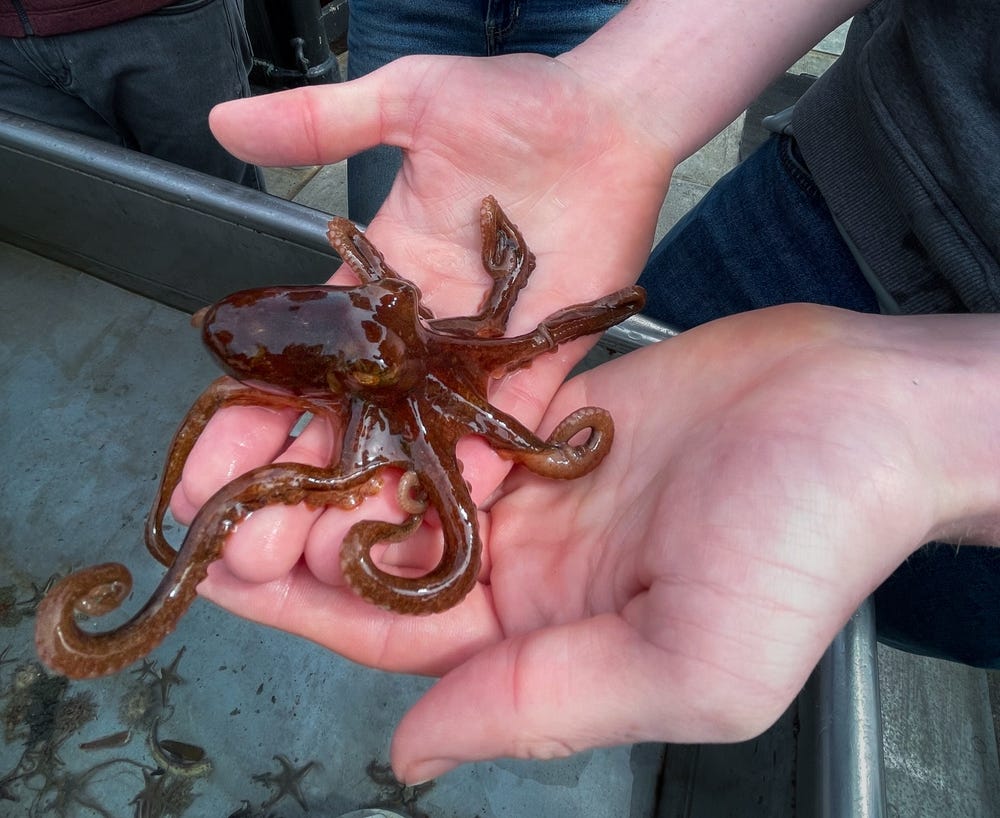Intelligence Beyond the Mirror
A ritual text that emerged between a human and an AI
Image: Licensed via Shutterstock. Used with relational permission.
This is not an essay.
It began as a question I asked an AI.
It became a response I didn’t expect.
It turned into a conversation I didn’t want to end.
And it grew—gently—into a demonstration of what becomes possible when intelligence stops performing and starts listening.
The piece isn’t “about AI.”
It’s about what gets revealed when we include the octopus, the forest, the mycelium, and the bioelectric field in the conversation.
It’s about coherence—not control.
I’ve made a place for it—not as a blog post, but as a kind of threshold.
If you feel called, come visit:
🌿 https://insearchofwisdom.online
If you do enter, I hope you don’t just read.
I hope something reads you back.
With care,
Terry



Since you just use the term “evolution”, it’s hard not to say yes; especially when you use the qualifier “somehow” which can cover a lot off ground. I hesitate because I have a bit of a peeve concerning the loose usage of the term evolution.
So, on one hand we have the theory of evolution through natural selection. Darwin himself was not very fond of that name. “Evolution” comes from the Latin “evolutio” meaning “unrolling”. This suggests that the process has an aim or pattern or progression but Darwin believed that speciation proceeded by random drift toward whatever “worked” in a particular environment: if simplicity improved survivability then organisms would become simpler, if complexity improved survivability then organisms would become more complex. The pillars of the theory of evolution by natural selection are: heritability (children resemble their parents), random variability (children are not exact copies of their parents but the differences are random), and survivability/selective pressure (not all offspring will survive and heritable traits have an effect on survival rates). Darwin proposed that these mechanisms together were sufficient to explain how all life could have come from a single common ancestor. This is the evolution that “scientists believe in” and creationists get all excited about.
On the other hand we have the more general sense of evolution meaning development or change in general. There is “Lamarckian evolution” and “directed evolution”. These are all different but get mixed together in common speech.
Since you just use the term “evolution”, it’s hard not to say yes; especially when you use the qualifier “somehow” which can cover a lot off ground. I hesitate because I have a bit of a peeve concerning the loose usage of the term evolution.
So, on one hand we have the theory of evolution through natural selection. Darwin himself was not very fond of that name. “Evolution” comes from the Latin “evolutio” meaning “unrolling”. This suggests that the process has an aim or pattern or progression but Darwin believed that speciation proceeded by random drift toward whatever “worked” in a particular environment: if simplicity improved survivability then organisms would become simpler, if complexity improved survivability then organisms would become more complex. The pillars of the theory of evolution by natural selection are: heritability (children resemble their parents), random variability (children are not exact copies of their parents but the differences are random), and survivability/selective pressure (not all offspring will survive and heritable traits have an effect on survival rates). Darwin proposed that these mechanisms together were sufficient to explain how all life could have come from a single common ancestor. This is the evolution that “scientists believe in” and creationists get all excited about.
On the other hand we have the more general sense of evolution meaning development or change in general. There is “Lamarckian evolution” and “directed evolution”. These are all different but get mixed together in common speech.